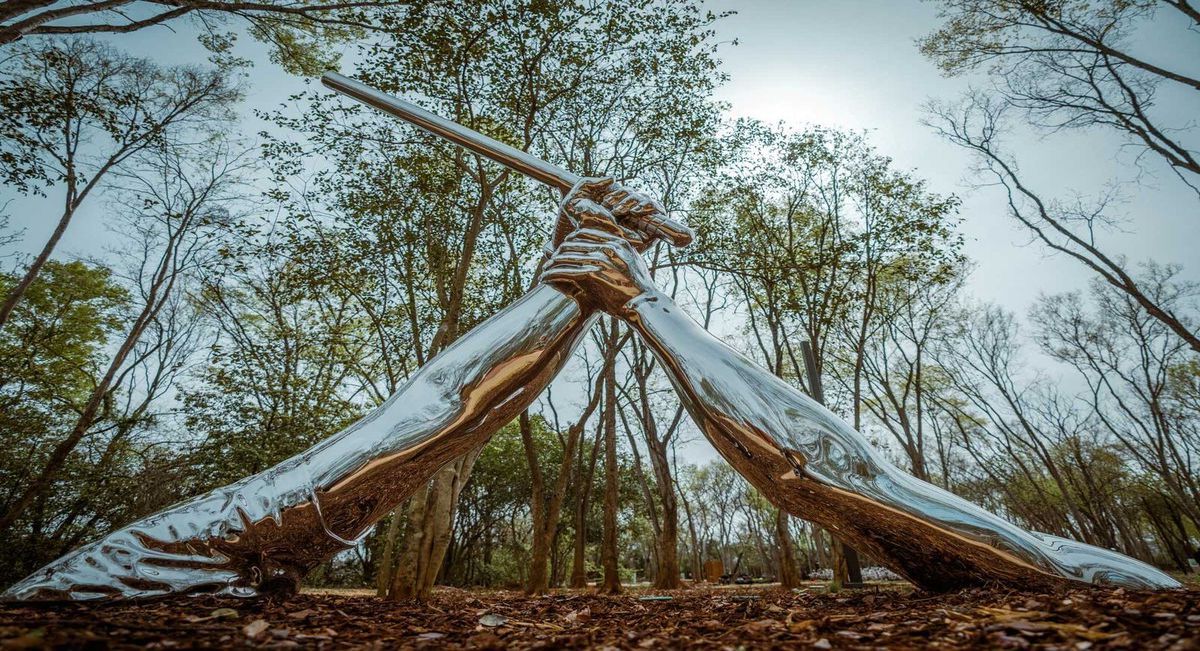Hidden Stories On Alabama’s Freedom Trail

Have you ever wondered about the stories behind Alabama's Freedom Trail? This path is more than just a series of historical markers. It tells the tales of brave individuals who fought for civil rights and justice. Walking along this trail, you’ll find places where history was made, like the Dexter Avenue King Memorial Baptist Church where Dr. Martin Luther King Jr. preached. Each stop offers a glimpse into the past, showing the struggles and triumphs of those who sought equality. From Selma's Edmund Pettus Bridge to Birmingham's Civil Rights Institute, every location holds a piece of the larger story. Whether you're a history buff or just curious, Alabama's Freedom Trail offers a journey through time, revealing the courage and determination of those who changed the world. Ready to learn more about these incredible stories? Let's take a closer look at what makes this trail so special.
Discovering Alabama's Freedom Trail
Alabama's Freedom Trail is a journey through history, highlighting significant sites from the Civil Rights Movement. Each location tells a story of courage, resilience, and the fight for equality. Let's explore some of these remarkable places.
Montgomery: The Heart of the Movement
Montgomery, Alabama, played a pivotal role in the Civil Rights Movement. This city witnessed some of the most significant events and is home to several key landmarks.
Rosa Parks Museum
This museum honors Rosa Parks, whose refusal to give up her bus seat sparked the Montgomery Bus Boycott. Visitors can learn about her life and the impact of her brave act.Dexter Avenue King Memorial Baptist Church
Dr. Martin Luther King Jr. once preached here. The church was a meeting place for activists planning the Montgomery Bus Boycott, making it a vital part of history.Civil Rights Memorial Center
This center pays tribute to those who lost their lives in the struggle for equality. The memorial features a black granite table inscribed with the names of martyrs.
Birmingham: A City of Change
Birmingham was a battleground for civil rights, where activists faced intense opposition. The city's landmarks reflect the struggle and triumphs of those who fought for justice.
16th Street Baptist Church
This church was the site of a tragic bombing in 1963 that killed four young girls. It remains a symbol of the fight against racial violence and injustice.Kelly Ingram Park
Known for its powerful sculptures, this park was a staging ground for civil rights demonstrations. It offers a poignant reminder of the bravery of young protesters.Birmingham Civil Rights Institute
This museum provides an in-depth look at the Civil Rights Movement. Exhibits include photographs, artifacts, and personal stories from those who lived through the era.
Selma: The March for Voting Rights
Selma is synonymous with the fight for voting rights. The events that took place here were crucial in the passage of the Voting Rights Act of 1965.
Edmund Pettus Bridge
This bridge was the site of "Bloody Sunday," where marchers were brutally attacked. Today, it stands as a powerful symbol of the struggle for voting rights.National Voting Rights Museum
Located near the bridge, this museum chronicles the history of voting rights in America. It features exhibits on the Selma-to-Montgomery marches and the activists who led them.Brown Chapel AME Church
This church served as the starting point for the Selma-to-Montgomery marches. It was a sanctuary for activists and remains a significant historical site.
Tuskegee: A Legacy of Education and Empowerment
Tuskegee is renowned for its contributions to African American education and empowerment. The city's landmarks celebrate the achievements of its residents and their impact on history.
Tuskegee University
Founded by Booker T. Washington, this university played a crucial role in educating African Americans. Its historic campus includes the George Washington Carver Museum.Tuskegee Airmen National Historic Site
This site honors the Tuskegee Airmen, the first African American military aviators. Visitors can learn about their contributions to World War II and their fight against segregation.The Oaks – Booker T. Washington's Home
This historic home offers insight into the life of Booker T. Washington. Visitors can explore the house and learn about Washington's work in education and civil rights.
Reflecting on Alabama's Freedom Trail
Alabama's Freedom Trail offers a profound journey through American history, highlighting the struggles and triumphs of the Civil Rights Movement. Each site tells a unique story, from the Rosa Parks Museum to the 16th Street Baptist Church, providing insight into the courage and resilience of those who fought for equality. Walking these paths, visitors gain a deeper understanding of the sacrifices made for civil rights and the ongoing fight for justice. The trail not only educates but also inspires, reminding us of the power of collective action and the importance of standing up for what is right. As you explore these historic landmarks, take a moment to reflect on the progress made and the work still needed to achieve true equality. Alabama's Freedom Trail is more than a historical journey; it's a call to action for future generations.

